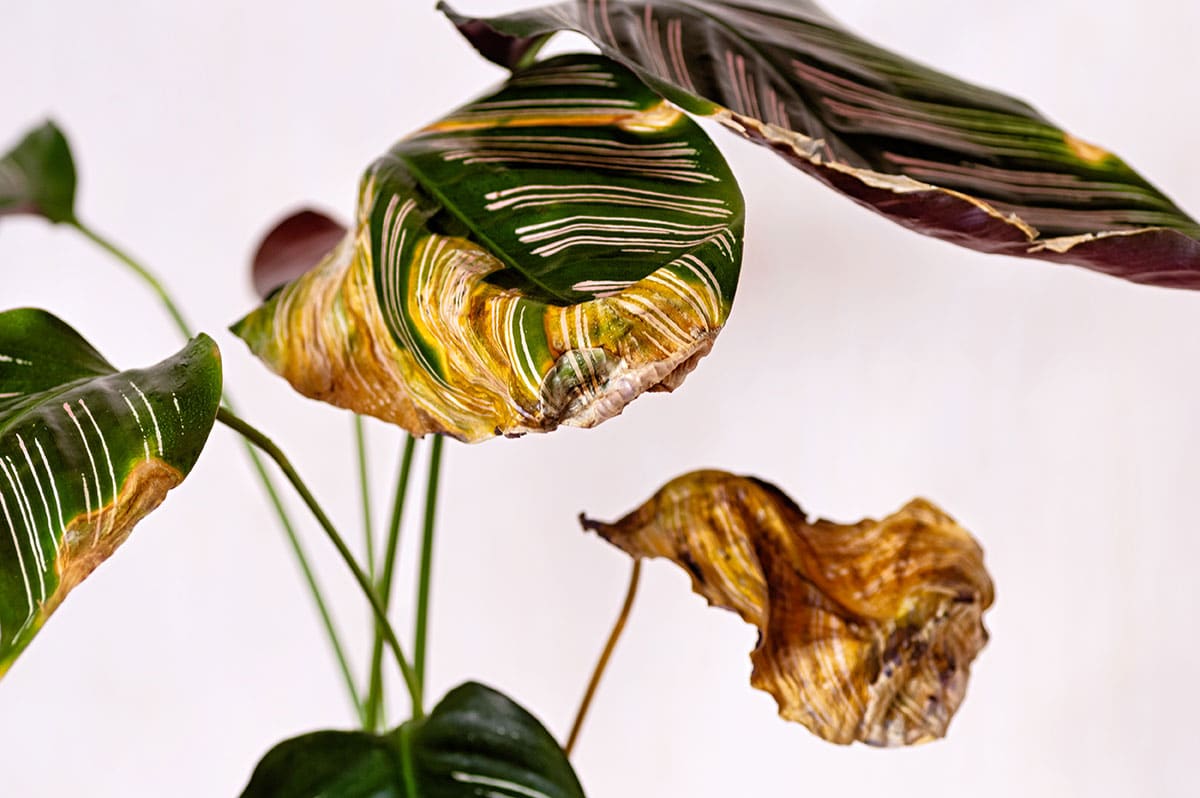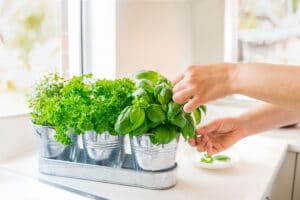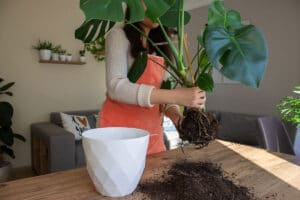Houseplants are living beings that need different types of care in order to thrive. Just like humans, some are more sensitive than others to their environment and the care they receive. Are your green, flowering or succulent plants looking a little down? Here are a few things to check and correct to help your plants regain their health.
Lighting
It is important to choose the right plant according to the level of light available in the room where it will be located. Light is the main source of energy for plants and it is crucial to meet their needs. You may have a crush on a plant, but if you can’t provide the right light, you’ll have to give up. A few signs can tip you off:
Too much light:
- Discolored leaves or leaves with white spots
- Burnt foliage: brown, black and dry
- Flowering between the leaves and not above
Lack of light:
- Pale new growth
- Etiolated plant: long stems with a large distance between leaves or with leaves at the tip only
- Yellowed leaves that fall off
Define your light level (window orientation, direct sun, light blocking obstruction, etc.) and inform yourself properly before making your choice.
Watering
If your lighting is fine, but your plants are still in bad shape, you need to look at watering. Watering needs vary from plant to plant and are influenced by different factors such as temperature and time of year. It is important to know that plants suffer more from too much water than too little, and when in doubt, it is best to wait before watering. Here are some of the telltale signs:
Too much water:
- Blackened leaves
- Rotten smell
- Yellow flower buds that fall off
- Appearance of sciarid flies
Not enough water:
- Yellowed leaves
- Wilted plant
- Foliage collapsed
- Green flower buds falling off
Make sure your pots have at least one drainage hole that allows excess water to drain away. Also, touch the soil a few inches deep to see if it’s dry before watering. Listen to your plants. For everything you need to know about watering, read this : https://centredejardinbrossard.com/en/watering-your-houseplants-an-art-that-pays-off/
Insects
Insects can also damage your plants. If your plants show a sudden change, inspect them carefully: on and under the leaves, in the nodes (where the stems meet the leaves), on the surface of the potting soil and even in the planter. The insects are often tiny, so pay close attention. The first step is to identify the pest and then get rid of it the right way, with an insecticide, a trap or a good cleaning.
If one of your plants is infested with insects, move it quickly away from the others so that it does not contaminate them and clean its location thoroughly; some insects can lay eggs on the surfaces surrounding the plant. A little advice: always isolate your new arrivals!
Diseases
Various diseases can also affect houseplants. They are mainly caused by fungi. By providing good watering and adequate lighting, plants are more resistant to disease: stay on the lookout. If you suspect a disease, ask a specialist who will tell you how to treat it, if possible.
Other possible causes
- Cold or hot air currents: move the plant away from windows, radiators or heating and air conditioning outlets
- Lack of nutrients: feed with a plant food for indoor plants
- Plant too cramped: repot the plant in a slightly larger pot (never more than a few centimeters at a time)
Our garden centre specialists can help you identify the problems with your houseplants and suggest solutions to help them regain their health and flourish in your environment, to your eyes’ delight!






